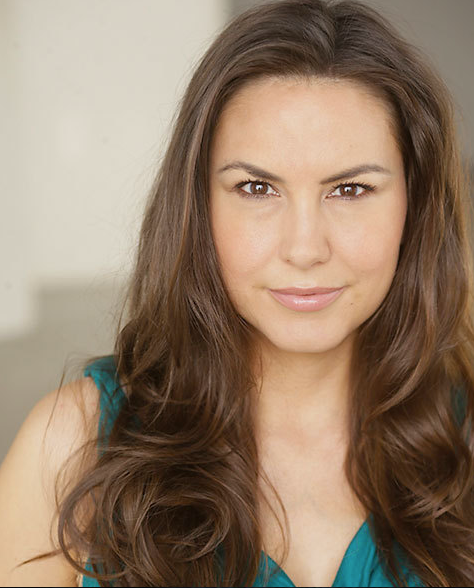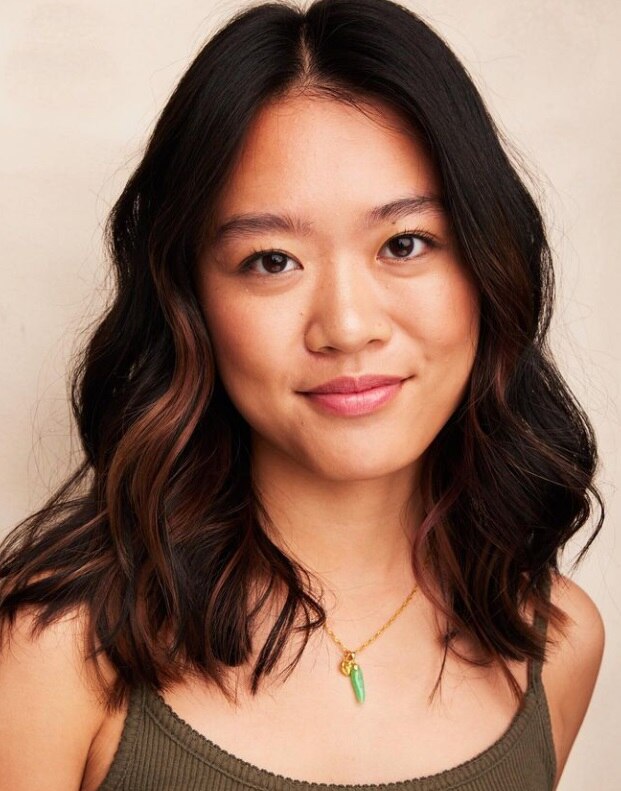Editor’s Note: In partnership with the Doris Duke Foundation and the Sheri and Les Biller Family Foundation, TCG’s THRIVE! Uplifting Theatres of Color initiative offered $1,140,000, equaling 46 grants in 3 categories, to U.S.-based (including Tribal lands and Territories) Black Theatres, Indigenous Theatres, and Theatres of Color (BITOC). In addition to the funds, 21 BITOC receiving RECOGNIZE category grants also participated in REBUILD, a learning cohort working with BIPOC consultants to strengthen their effectiveness in specific areas. The initiative was created with an advisory committee of 14 BIPOC theatre leaders and artists. To further uplift these companies, American Theatre magazine approached myself (Regina Victor, editor of Rescripted) and fellow cultural critic Jose Solís to curate and edit six articles highlighting the RECOGNIZE companies, with each of us guiding three pieces. It was our work to divide and then re-thread these companies together into articles with common themes, source writers and assign them, and edit their drafts, with American Theatre seeing to the final copy edit. These stories are examined through the lens of this year’s critically focused Rising Leaders of Color cohort (Amanda L. Andrei, Citlali Pizarro, and afrikah selah), as well as three Chicago-based writers (Dillon Chitto, Madie Doppelt, and Tina El Gamal). This six-part essay series showcases 21 examples of people doing the work, championing their culture, and finding creative solutions to generational problems. Thanks to Jose for being a wonderful thought partner in this project, and to Emilya Cachapero and Raksak Kongseng for their invitation and support.
When I was asked to write this article, I was working on a pronunciation guide for my play Pueblo Revolt, originally commissioned by and developed at AlterTheater in California. In the play, which takes place in what is now known as New Mexico in the 1680s, there are words in the various Pueblo languages of Tiwa, Tewa, Towa, Keres, and Zuni. I realized that this detail was small, and many, if not most, of the audience would not notice if the words were pronounced incorrectly. But it is in these details that the authenticity of the story lives. If I wasn’t telling an authentic story, why was I working on this play?
As a Mississippi Choctaw as well as Isleta and Laguna Pueblo playwright, I have a love for telling and seeing authentic Indigenous stories onstage. As I have grown in my career, I have loved seeing the elevation of authentic BIPOC stories. Many BIPOC theatres around the country are creating theatre that is “for us, by us.”
Among those theatres are four of the 21 recipients of the RECOGNIZE grant: AlterTheater, KC Melting Pot Theatre Productions, East West Players, and Native Voices at the Autry. The elements that make these theatres truly “for us, by us” are space, authenticity, and centering our voices.
Space

As literary manager for AlterTheater, Diana Burbano leads the AlterLab program, which brings together playwrights at varying stages of their careers to work together. Said Burbano, “It’s impossible to create work you can be proud of unless you have an authentic space where you check your biases, are truthful, and listen to criticism and as well as praise.” She added, “Sometimes you work in a space without the same kind of thoughtful processing, and the damage can be irreparable. It’s so much better to come into a space where everyone understands the ground they are on and feel free enough to show up as their authentic self without editing.”
For Tiffany To, the development coordinator of East West Players, the nation’s longest-running Asian American theatre, “The value of an authentic space is in the people who have this lived experience to tell their stories, to have the resources to do it well, do it properly, and make it accessible to the public.”
At Kansas City’s oldest African American theatre company, KC Melting Pot, artistic director Dr. Nicole Hodges Persley said, “We keep our eyes on our own paper, if you will, and make sure that the work that we put up is in the interest of the community that we invest in, makes us proud, and aligns with our dedication to supporting Black artists and inviting all community members to learn a different perspective of American identity.”

KC Melting Pot has many programs through which they strive to do this, among them the KCMPT Black Playwright Festival as well as Alchemy, a Black Maker Space, for Black playwrights and content creators.
For more than a decade, Native Voices at the Autry has hosted the Annual Playwrights Retreat and Festival of New Plays, a space for emerging and established Native American playwrights to work with directors, dramaturgs, and actors. Native Voices is the nation’s only Equity theatre exclusively dedicated to developing and producing new Native American work. Said artistic director DeLanna Studi, “Since 2020, Native Voices has been implementing new ways to Indigenize theatre. One of those ways is by pairing Native playwrights with Native dramaturgs to help create a safe space where the authentic Native story structure is valued and uplifted, rather than forced into an Aristotelian mold.”
Authenticity

Often the ideas that others have about our identities as people of color can be harmful. “There are a lot of stories that historically have been written about us but not by us,” as To put it. East West Players has been a national leader in counteracting this tendency, developing so many AAPI writers who fulfill the “by us” mandate that they are now branching out beyond “about us.” As To said, “EWP is commissioning artists and writing about things beyond Eastern Asian culture.”
Dr. Hodges Persley pointed out that authenticity is subjective to each person’s experience. “We are authentic to ourselves,” she said, “because we have a mission and vision to serve and build Black artists in our community and to create opportunities and to overcome barriers and systemic inequities.”
“At Alter,” Burbano said, “what you see is what you get, and we encourage the free flow of ideas, learning new things with open hearts, even when the truth might be difficult or painful. We try to be honest and vulnerable and encourage those who work with us to do the same.”
Added Native Voices’ Studi, “It is only by having our own Indigenous people tell these stories that we are able to disrupt the stereotypes that have been forced upon us and share a narrative that has often been silenced.”
I can speak to this personally. When I worked with Native Voices on my first play, Bingo Hall, the experience of being around so many other Native theatremakers was invaluable. It showed me that it is possible to tell Native stories on the American stage authentically and unapologetically.
Centering Voices

So how do we as theatremakers tell stories that are for us, by us? We asked each of these companies what it means to them to center their community.
“New voices!” enthused Burbano. “As literary manager, my job is to open the world up to new and unheard voices who deserve to have a space carved out for them in the theatre. I strive to make the space for them so our writers and creators can do just that: create without having to navigate and compromise with a process that feels strained and not nurturing.”
Said To, “EWP looks different than it did in 1965, but it’s still run by people who very strongly believe in the mission.” This makes all the difference, she added: “If you are not passionate, the work that you create does not reflect the work others want to see within the community. That’s why it’s so important to have work ‘for us, by us’—because we are the audience.”
For Dr. Hodges Persley, work that is “for us, by us” is characterized by urgency. “I am continuously inspired by the work of W.E.B. Du Bois, who gave us that quotation of theatre by, about, for, and near Black artists. Du Bois wanted the theatre to be a space where community could learn about social, cultural, and political injustices as much as he wanted theatre that could entertain. Theatre was urgent for Du Bois, and it is for us.”
I know our theatre can hold this duality. Pueblo Revolt is about Indigenous joy, but also has a sense of urgency in the decolonial discussions. If it weren’t for the authentic space of AlterLab, I wouldn’t have had the courage to write it. And it is because of brave BIPOC theatres like these, who believe that new perspectives from writers of color are urgent, that the American theatre may grow and continue to evolve. Generative spaces are needed now more than ever, and there is great need for community investment. The RECOGNIZE grant is an exciting step in the direction for these theatres to continue to tell authentic stories.
Dillon Chitto is a Mississippi Choctaw, Laguna, and Isleta Pueblo playwright from Santa Fe, New Mexico. He currently lives in Chicago.
Want to learn more about the THRIVE! grant recipients? Check out this new video featuring them here.


